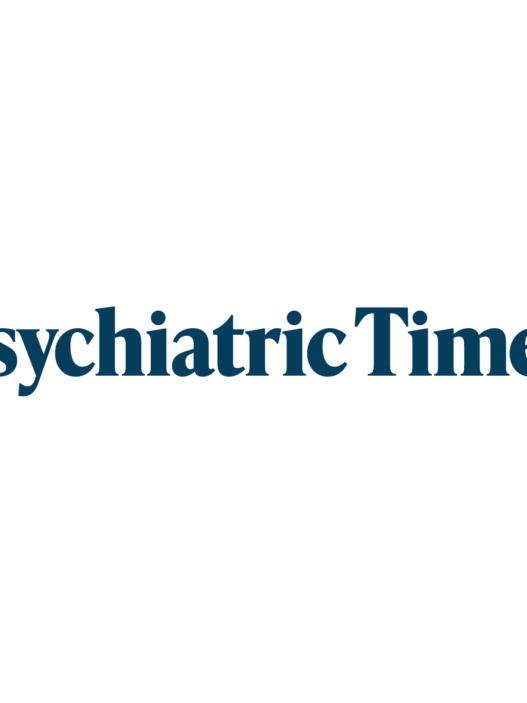
BIPOLAR UPDATE
A study found that children diagnosed with attention-deficit/hyperactivity disorder (ADHD) have a 10-fold increase in the incidence of developing bipolar disorder when compared with matched children without ADHD.1 The comorbidity is common, has a more severe course than either diagnosis alone, and is associated with greater risk of suicide attempts.2
Overlapping Genetics
The comorbidity of ADHD and bipolar disorder may involve overlapping genetics. In Sweden, 13,532 twin pairs (aged 9-12 years) were evaluated using parent-rated instruments for ADHD and hypomanic episodes.3 The twin pairs were reassessed at age 15 (n = 3784) and again at age 18 (n = 3013). They found that genetic factors associated with hypomania explained 25% to 42% of the likelihood of having ADHD’s hyperactive/impulsive symptoms. There was less effect on the inattentive symptoms of ADHD. Monozygotic twins had a stronger association of the 2 conditions than the dizygotic twins. The rest of the variance was presumed to be associated with causes of ADHD that do not contribute to causing hypomania.
Diagnosis
Clinicians may have trouble determining which diagnosis best fits the patient—ADHD or bipolar disorder—but often the patient has both. The patient (and/or prescriber) may prefer the ADHD diagnosis and the stimulant medications used to treat it. They hope to avoid the diagnosis of bipolar disorder because of the perceived stigma and complexity of treatment. The differential diagnosis is made by recognizing that bipolar (hypo)manias occur in discrete episodes lasting at least 4 to 7 days, whereas the hyperactivity and associated symptoms of ADHD are constantly present as features of the individual’s temperament. During mania, the patient develops a distinctly higher activity level than their baseline and has other characteristic symptoms, such as decreased need for sleep and rapid speech. This is often followed by a rapid crash into depression, and this higher level of activity and energy sharply decreases.
Treatment
Stimulant treatment of ADHD when there is comorbid bipolar disorder has been controversial. An observational study from Sweden involving 2307 adults suggested that patients should be on a mood stabilizer before adding a stimulant for ADHD in patients with bipolar disorder, or there might be a 7-fold increased risk of developing mania or hypomania.4 Methylphenidate (MPH) was the stimulant in the study, as amphetamine products are not available in Sweden.
However, a new observational study from Denmark (also involving MPH) attempted to replicate this study and correct proposed errors in the methodology. Investigators tracked 1043 adults and found no increase in (hypo)mania in patients with bipolar disorder who were not on a mood stabilizer and treated with MPH.5 This study seemed more persuasive. The investigators were partly motivated by their belief that MPH might be a treatment for mania. In a brief placebo-controlled trial of MPH, no benefit was found, but there was also no worsening of mania from the MPH in these patients.6 Notably, there has been minimal study of amphetamine products for ADHD in patients with bipolar disorder, and it is possible they are not as safe.7
Concluding Thoughts
In summary, the new thinking proposed in this update is that recent data suggest that it is OK to use MPH in adult patients with bipolar disorder for their comorbid ADHD, even if the patient is not on a mood stabilizer. We are not sure that the same can be said for the use of amphetamine products (which are used more often for ADHD in adults compared with MPH, though maybe not justifiably). More research is needed about the safety of using amphetamine products in this situation.
Dr Osser is an associate professor of psychiatry at Harvard Medical School in Boston, Massachusetts; a psychiatrist at the Veterans Affairs (VA) Boston Healthcare System, Brockton Division; and codirector of the VA National Bipolar Disorders TeleHealth Program. He reports no conflicts of interest concerning the subject matter of this article.
References
1. Meier SM, Pavlova B, Dalsgaard S, et al. Attention-deficit hyperactivity disorder and anxiety disorders as precursors of bipolar disorder onset in adulthood. Br J Psychiatry. 2018;213(3):555-560.
2. Lan WH, Bai YM, Hsu JW, et al. Comorbidity of ADHD and suicide attempts among adolescents and young adults with bipolar disorder: a nationwide longitudinal study. J Affect Disord. 2015;176:171-175.
3. Hosang GM, Lichtenstein P, Ronald A, et al. Association of genetic and environmental risks for attention-deficit/hyperactivity disorder with hypomanic symptoms in youths. JAMA Psychiatry. 2019;76(11):1150-1158.
4. Viktorin A, Rydén E, Thase ME, et al. The risk of treatment-emergent mania with methylphenidate in bipolar disorder. Am J Psychiatry. 2017;174(4):341-348.
5. Jefsen OH, Østergaard SD, Rohde C. Risk of mania after methylphenidate in patients with bipolar disorder. J Clin Psychopharmacol. 2023;43(1):28-34.
6. Hegerl U, Mergi R, Sander C, et al. A multi-centre, randomized, double-blind, placebo-contrlled clinical trial of methylphenidate in the initial treatment of acute mania (MEMAP study). Eur Neuropsychopharmacol. 2018;28(1):185-194.
7. Moran LV, Skinner JP, Shinn AK, et al. Risk of incident psychosis and mania with prescription amphetamines. Am J Psychiatry. 2024;181(10):901-909.
